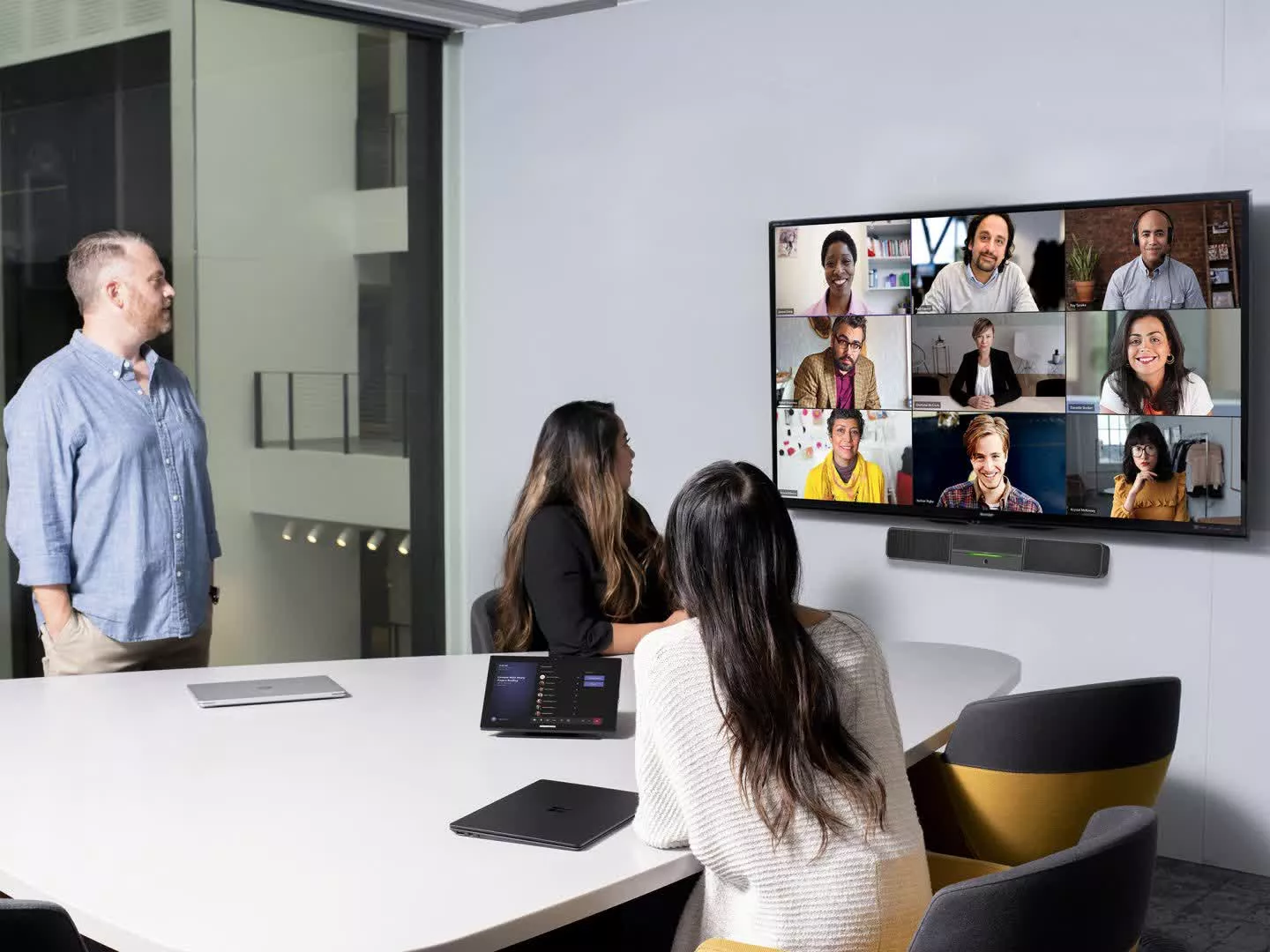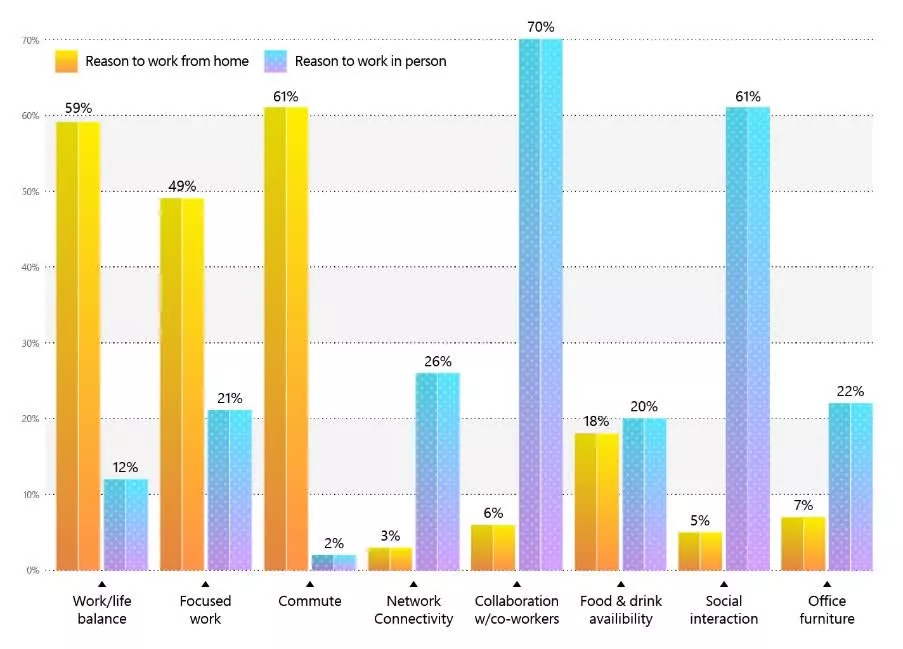In brief: With remote work now the norm for so many people, and a full-time return to the office looking further away than ever, does working from home make people better employees? According to a recently published study by Microsoft, no, it doesn’t. It actually results in less communication and collaboration between teams, which could impact productivity and innovation.

Microsoft’s peer-reviewed study, published in the journal Nature Human Behaviour, covers 61,000 employees. It looked at anonymized data of their working patterns starting December 2019—before the lockdowns—up to June 2020.
The researchers concluded that the shift to company-wide remote work caused the collaboration network to become more siloed, with workers less likely to communicate with those in other departments. Microsoft said collaboration time employees spent with other groups dropped by about 25% compared to pre-pandemic levels.
“Without intervention, the effects we discovered have the potential to impact workers’ ability to acquire and share new information across groups, and as a result, affect productivity and innovation,” Microsoft wrote in an accompanying post.

Additionally, there was an increase in asynchronous communication, including email, SMS or corporate chat, calendars, and instant messages. Synchronous communication—the likes of phone and video calls and face-to-face meetings—declined.
“Based on previous research, we believe that the shift to less ‘rich’ communication media may have made it more difficult for workers to convey and process complex information,” the Microsoft researchers wrote.
While some say people do less work at home, the study showed that the average number of hours an employee worked in a week increased. Not surprisingly, the volume of emails and instant messages they sent and received also increased, but the number of hours spent in meetings declined. A different study from last year found that while people were spending fewer hours in meetings, the frequency of shorter meetings had gone up.
Microsoft believes adopting a hybrid work system would only mitigate the problem of reduced productivity and innovation rather than address it.
Summarizing, the researchers wrote, “In light of these findings, companies should be thoughtful about if and how they choose to adopt long-term work-from-home policies.”
Conversely, Microsoft employees told a separate study that their feelings of inclusion and support from managers are at all-time highs, and they feel no less productive than before. But not everyone found remote work enabled the best work-life balance, time to focus, and time to collaborate.
The results came on the same day that Microsoft gave up on trying to predict when it would fully reopen its US offices. The company had originally given October 4 as a date, but, as with so many things, the Covid-19 Delta variant as thrown a spanner in the works.
Apple has also been forced to reassess its plans for a worker return. It originally wanted the majority of its workforce to come back in for three days per week this month, but that was changed to October at the earliest. The date was recently pushed again until January 2022, though it could be even later as many staff have expressed concerns over returning to the office too early.
